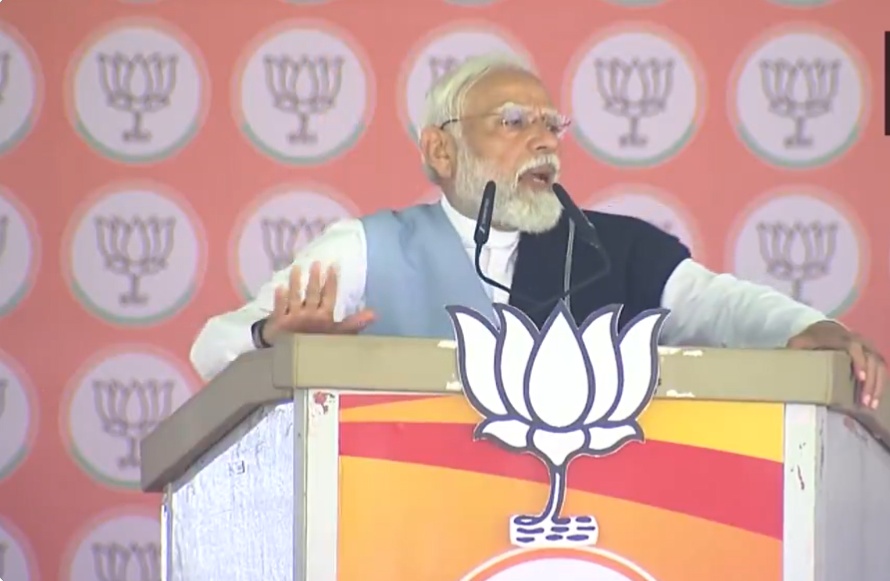Prime Minister Narendra Modi’s recent remarks at a public meeting in Bagalkote, Karnataka, have ignited a fresh wave of scrutiny over the state’s economic prospects under the governance of the Congress party.
In a bold prediction, Prime Minister Modi warned of impending financial distress, cautioning, “Days are not far when Congress in Karnataka won’t be able to give payments to the government employees.” His statements come amidst a charged political atmosphere in the state, with the Congress party holding significant sway.
Further reinforcing his apprehensions, Modi evoked a familiar adage, “Congress aayi, tabaahi laayi,” meaning “Disaster follows where Congress goes.” This pointed criticism of the Congress party’s governance history struck a chord with the audience, amplifying concerns about the state’s economic stability.
The Prime Minister’s comments have sparked vigorous debate within political circles and among the populace, resurrecting questions about Karnataka’s fiscal resilience under varying political regimes. As citizens grapple with the implications of Modi’s admonitions, doubts emerge regarding the Congress party’s ability to safeguard the state’s financial interests.
As Karnataka braces for crucial electoral decisions, Modi’s warnings serve as a wake-up call, underscoring the imperative of prudent governance and responsible fiscal management. Against the backdrop of competing political narratives, the issue of Karnataka’s financial viability assumes heightened significance, shaping public discourse and electoral dynamics.
With the electorate poised to cast their votes, the future trajectory of Karnataka’s economy hangs in the balance. As citizens weigh their options, Modi’s cautionary remarks reverberate as a poignant reminder of the pivotal role of governance in securing the state’s economic well-being.
As Karnataka prepares to chart its course forward, the specter of financial instability under Congress rule looms large, injecting a sense of urgency into the electoral discourse. In the coming days, citizens will closely monitor developments, eager to discern the fate of their state’s economic future.



